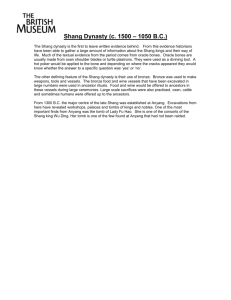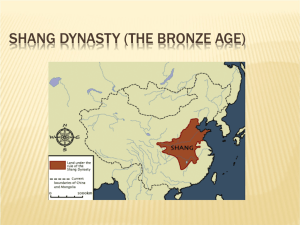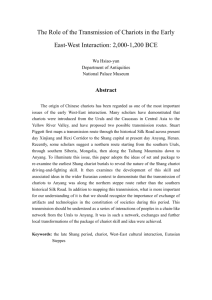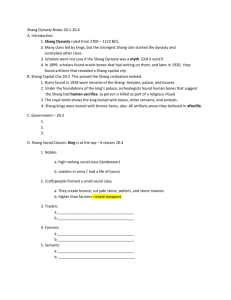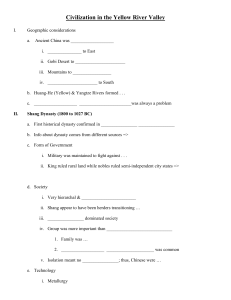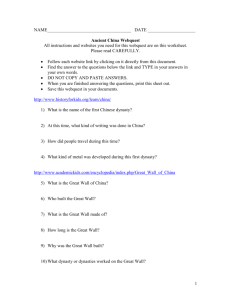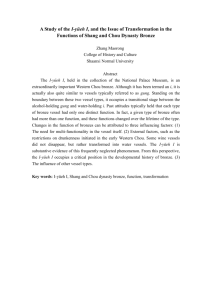Neolithic period - Early Imperial China
advertisement
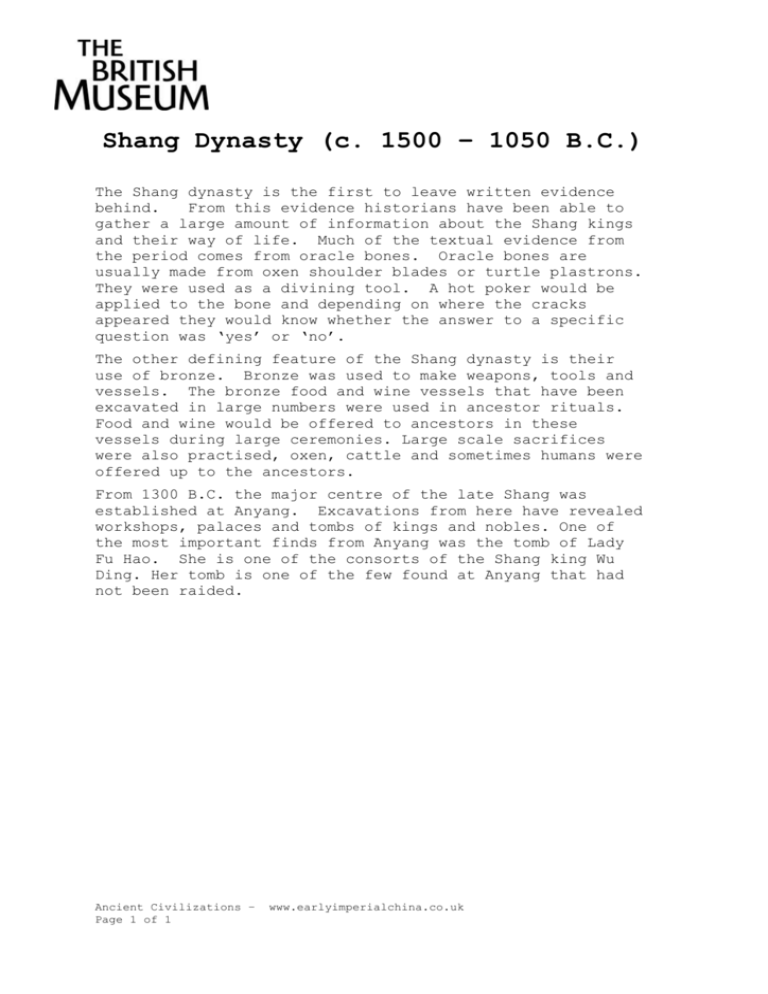
Shang Dynasty (c. 1500 – 1050 B.C.) The Shang dynasty is the first to leave written evidence behind. From this evidence historians have been able to gather a large amount of information about the Shang kings and their way of life. Much of the textual evidence from the period comes from oracle bones. Oracle bones are usually made from oxen shoulder blades or turtle plastrons. They were used as a divining tool. A hot poker would be applied to the bone and depending on where the cracks appeared they would know whether the answer to a specific question was ‘yes’ or ‘no’. The other defining feature of the Shang dynasty is their use of bronze. Bronze was used to make weapons, tools and vessels. The bronze food and wine vessels that have been excavated in large numbers were used in ancestor rituals. Food and wine would be offered to ancestors in these vessels during large ceremonies. Large scale sacrifices were also practised, oxen, cattle and sometimes humans were offered up to the ancestors. From 1300 B.C. the major centre of the late Shang was established at Anyang. Excavations from here have revealed workshops, palaces and tombs of kings and nobles. One of the most important finds from Anyang was the tomb of Lady Fu Hao. She is one of the consorts of the Shang king Wu Ding. Her tomb is one of the few found at Anyang that had not been raided. Ancient Civilizations – Page 1 of 1 www.earlyimperialchina.co.uk
